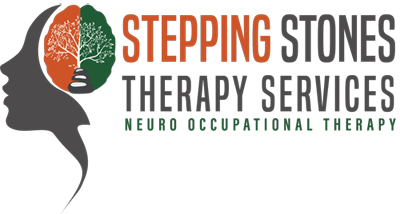Pain is a common and complex part of life after brain injury. It can affect everything — from your ability to rest to how confident you feel doing everyday tasks.
Occupational therapy helps you understand and manage this pain while supporting your wider rehabilitation. Whether you’re in early recovery or further along your journey, this kind of support can make daily life feel more manageable and meaningful.
If you’re navigating recovery and want to explore practical, personalised strategies, Stepping Stones is here to help.
Read more about how I support adults after brain injury or get in touch to talk things through.
Understanding Pain After Brain Injury
Pain after a brain injury can take many forms. Some people experience headaches, joint pain or nerve sensitivity. Others feel muscle tension or generalised discomfort that’s hard to explain.
This pain may be caused directly by the injury — such as in cases of traumatic brain injury, stroke or encephalitis — or develop secondarily from reduced movement, stress or poor sleep. In some cases, pain can be linked to conditions like hypoxic brain injury, anoxic brain injury or post-concussion symptoms.
What’s important to know is that your pain is real. And it deserves to be understood, not ignored.
Occupational Therapy and Pain Management
Occupational therapists look at pain in the context of your daily life. We help you find ways to move more easily, rest more deeply and live with less disruption.
Pain management through occupational therapy may include:
- Identifying activities that make pain worse (or better)
- Adjusting how you move, sit or complete tasks
- Supporting better sleep and rest routines
- Building gentle routines that support healing
- Developing pacing strategies to reduce flare-ups
The aim is not just to reduce pain, but to give you back a sense of control and confidence.
Rehabilitation for Brain Injuries: More Than Just Recovery
Brain injury rehabilitation services don’t just treat the injury — they help you build a life around it.
Occupational therapy focuses on the skills and roles that matter to you, whether that’s preparing meals, going to work or managing family life. We explore how to make activities feel more manageable and meaningful, even when fatigue, pain or overwhelm are present.
Together, we might look at:
- Using aids or equipment to reduce strain
- Planning your day to conserve energy
- Creating calming routines to manage stress and reduce pain
- Setting achievable goals for physical rehabilitation
This approach can be part of a joined-up plan with physiotherapy, speech therapy or medical care. You don’t have to go it alone.
Support Through Every Stage of Recovery
Recovery after a brain injury doesn’t follow a straight path. Pain might ease and return. You might feel stuck or overwhelmed. That’s okay.
Occupational therapy offers consistent support throughout your rehabilitation journey — from early recovery to later stages of life after brain injury.
This includes support with:
- Returning to work or education
- Managing relationships and roles
- Coping with changes to identity or confidence
- Building strategies for long-term wellbeing
Over time, this can lead to better patient outcomes, improved participation and enhanced quality of life.
When to Seek Specialist Care
If pain is limiting your daily life — or making your rehabilitation feel harder — it’s worth seeking support.
You don’t need a formal diagnosis or a certain level of injury. Whether you’re recovering from a concussion or navigating longer-term changes from a neurological condition, personalised occupational therapy can help you find a new way forward.
At Stepping Stones, I work one-to-one with clients to build plans that reflect their goals, energy and pace. You don’t have to push through alone.
Practical Help and Personalised Support
Pain is exhausting — physically and emotionally. But with the right support, it doesn’t have to run the show.
Occupational therapy helps you adapt, recover and reclaim the things that matter to you. It’s not about ignoring pain. It’s about living alongside it, with greater ease and confidence.
Ready to Talk?
If you’re facing pain after brain injury and don’t know where to start, I offer a free 15-minute phone consultation to talk things through.
Whether you’re newly injured or further along in recovery, we can build a plan that supports both your pain management and rehabilitation goals.
Contact Stepping Stones Neuro Occupational Therapy
Read more about how I help adults with pain and fatigue after brain injury.

